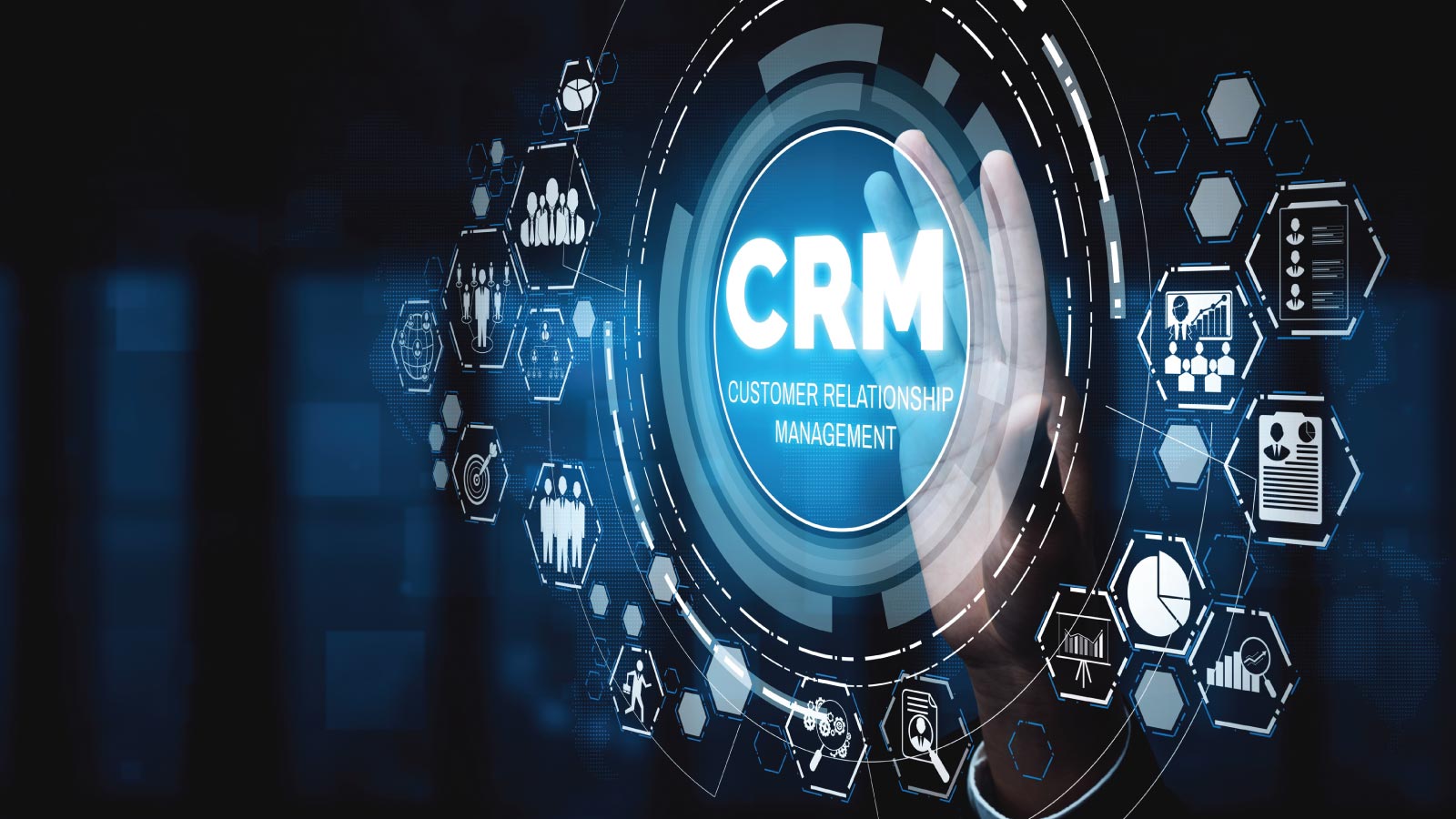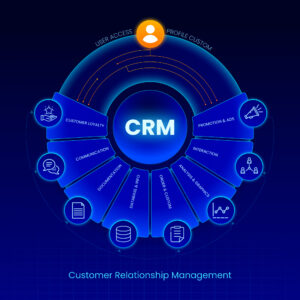Understanding the Role of CRM for Marketing Automation
Last updated on July 31, 2024
Published on July 31, 2024

Marketing automation is now one of the most revolutionary strategies for business organisations today. To explain what marketing automation is in simple words, we can say that it means automating marketing campaigns with the help of some software.
Key Benefits of Marketing Automation:
- Saves time by automating repetitive tasks.
- Enhances targeting and efficiency in marketing efforts.
- Ensures consistent communication with the audience.
- Leads to significant cost savings.
- Allows teams to focus on strategic activities.
Core Components of Marketing Automation
Email Marketing Tools:
- Create and send personalised emails to large groups.
- Enhance marketing efforts with targeted email campaigns.
Social Media Management Tools:
- Schedule posts and track engagement.
- Automate responses to keep your social media presence active.
CRM Systems:
- Manage customer interactions and data.
- Ensure personalised communication with customers.
Analytics and Reporting Tools:
- Provide insights into marketing campaigns.
- Help tweak strategies for better results.
Exploring the Relationship Between CRM and Marketing Automation
The most important component in marketing automation is Customer Relationship Management (CRM) systems. CRM software is an application that manages the company’s relationships with its existing and potential consumers. It employs data analysis features to provide a large amount of findings and key attributes from the customer data.
Benefits of Integrating CRM with Marketing Automation:
- Seamless flow of information between marketing and sales teams
- Comprehensive view of customer journey from prospect to customer
- Ability to send highly targeted and personalised messages
- Increased conversion rates through personalised interactions
Example of CRM and Marketing Automation Integration:
| CRM Data | Marketing Automation Response |
| Customer shows interest in a product | Sends more information about that product |
| Customer completes a purchase | Sends a thank-you email with a discount for the next purchase |
| Customer fills out a form on the website | Sends an instant acknowledgement |
Enhancing Customer Experience Through Automation
CRM for marketing automation impacts the customer experience directly and in many ways. A business can send customised emails at the right time to its customers for better impact and desired outcomes.
Ways Automation Enhances Customer Experience:
- Send tailored messages based on customer behaviour and preferences.
- Divide customers into segments for more relevant marketing efforts.
- Provide instant responses to customer inquiries, improving satisfaction.
- Use automated responses for common queries to free up customer service teams.
Automation Benefits for Customer Service:
- Quick interaction makes customers feel valued.
- Increases customer satisfaction.
- Boosts overall efficiency by handling complex issues more effectively.
Streamlining Marketing Processes with Automation
Marketing automation significantly streamlines marketing processes, making them more efficient and effective. Here are some key ways it helps:
Email Marketing Automation:
- Create automated email sequences based on customer actions.
- Send personalised emails to large groups effortlessly.
- Automate follow-up emails for increased engagement.
Social Media Automation:
- Schedule posts across various platforms in advance.
- Track engagement and automate responses to common queries.
- Maintain an active and engaging social media presence without constant manual effort.
Measuring Success with Automated Marketing Strategies
The final step of a successful marketing automation strategy is its outcomes. Having metrics and KPIs is vital to determining how effective the campaigns are with respect to the goals set. The role of the right measures is to help you know that you are doing the right things. Here are some crucial key metrics and KPIs to track in marketing automation campaigns:
| Metric | Description | Importance |
| Open Rates | Percentage of recipients who open your emails | Measures initial interest and effectiveness of subject lines |
| Click-Through Rates (CTR) | Percentage of recipients who click on links in your emails | Indicates engagement and relevance of content |
| Conversion Rates | Percentage of recipients who complete a desired action | Tracks effectiveness in driving desired outcomes |
| Engagement Rates | Frequency of interactions with social media posts | Gauges overall social media performance and audience interest |
CRM offers strategic business insights into customers’ behaviour patterns. You can then use this data to make adjustments to your marketing strategies.
Overcoming Common Challenges in Marketing Automation
Like with all processes, marketing automation is not without its issues. Among them, one widespread challenge is data integration. This means that integration of your CRM for marketing automation must be efficient. This often involves aligning data formats and ensuring accurate data flow between systems.
Addressing Data Integration Issues Between CRM and Automation Tools
Integrating data can be somewhat complex; however, this process is crucial for an organisation to run efficiently. Here’s how to tackle it:
- Ensure all systems use the same data formats.
- Regularly check for data inconsistencies and resolve them promptly.
- Employ tools specifically designed to facilitate data integration between CRM and automation platforms.
Ensuring Data Privacy and Compliance in Automated Marketing Practices
In today’s modern world, data protection is a real concern. Businesses need to ensure that their CRM and marketing automation software comply with national and international data protection regulations. This involves asking the customer for their permission before using their data and making the options of refusal easily available.
you may also like



